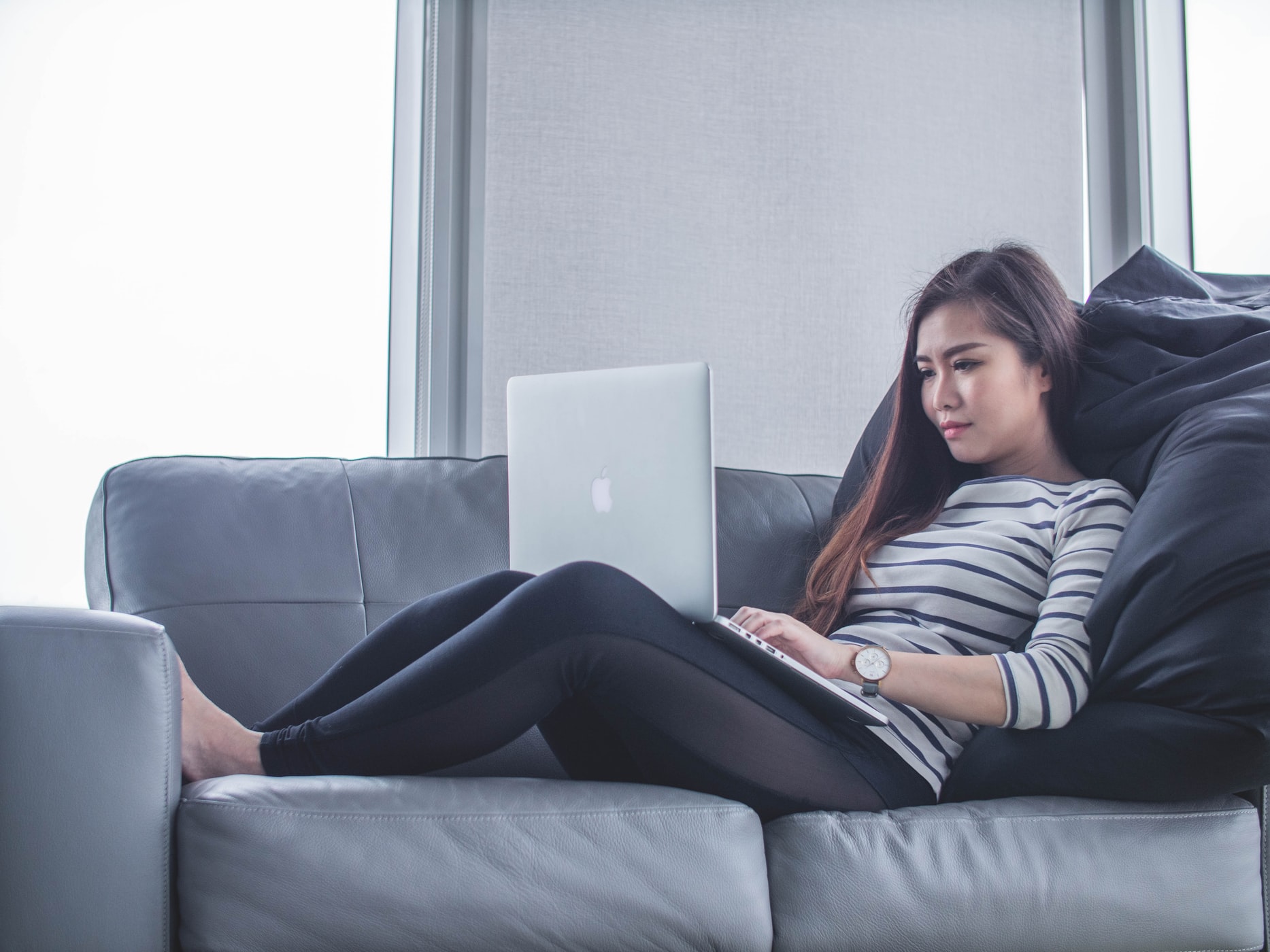
With the coronavirus pandemic raging around the world, millions of people are suddenly finding themselves working from home—for better or for worse. In many cases, this means sharing a dining room table with kids who are doing remote learning or carving out a corner of a crowded bedroom. Yaara Gooner to the rescue. This architect and designer has worked with five-star hotels, luxury restaurants and flagship commercial properties around the globe, designing spaces that boost productivity and spark creativity, while also offering a sense of place and home.
Most recently, as the lead architect and designer at LABS(flexible coworking spaces across London) and STAY (serviced apartments with the luxuries of a boutique hotel), Gooner has focused on creating environments that help people thrive. “We create spaces that are optimized for sleep, work and play,” says Gooner. “They are designed with a focus on wellness, where members and guests can be at their most productive and feel their best.”
Last month and this month, LABS and STAY have been offering their London-based spaces to those at the frontline of the pandemic, but in normal times, the brands provide hubs of enterprise that are designed to help everyone from travelers to local entrepreneurs maximize productivity, growth and well-being. Set to open in 2020, Victoria House will be LABS’ most ambitious venture yet—a contemporary workspace in an historic building.
Here, we caught up with Gooner and got her tips for how to be more effective, maximize productivity and maintain motivation while working from home—in style.
1. Create an office (whether you have one or not).
“A range of factors should be considered when designing a home office. Your ‘office’ may be its own dedicated room, or it might be the corner of a communal area or a dining table that’s had to be repurposed,” says Gooner. “Whichever way, considered design can help transform space and mindset into an ecosystem of productivity.”
The first thing to think about, says Gooner: “It’s important to create a zone that looks and feels distinct from the rest of your home.”
Create distinguished spaces at home so the boundaries between life and work don’t become too blurred. “If you have the luxury of an at-home office, using different design details is a great way to establish this as a ring-fenced area to be used only for work,” says Gooner. “Likewise, if you’ve had to set up a desk in the corner of a room or commandeer a dining table, you must make sure you clear the space of any ‘office’ items at the end of the day and reset your home. This creates zones (and boundaries) by virtue of the things being used at any given time.”
Another tip: “Use the time you might normally have spent on your commute as time to set up or put away your office,” says Gooner.
2. Use plants.
Research proves that adding plants to the workplace decreases stress while increasing productivity and memory retention. “Nature is imperative to the LABS design process and we’ve pledged to have at least one plant per every 100 square feet,” says Gooner. “There are concrete health applications to this initiative; one medium sized-plant per 50 feet of office space is said to absorb 75% of airborne pollutants—an important benefit in LABS’ bustling London locations.”
Working in an environment with lower toxicity not only improves worker productivity but also improves health. “To create a home office that feels clean and homely, mix natural tones and add color with plants,” says Gooner.
3. Get clever with lighting.
“Always try to maximize natural light in your workspace,” says Gooner. If possible, set up your desk near a window, which will aid your body in following its circadian rhythms.
“Our bodies respond to the changing light, allowing us to follow sleeping and productivity patterns, preparing for work or preparing for rest, disrupting this can lead to insomnia and disrupt digestion,” says Gooner. “Maximizing natural daylight is at the forefront of the development phase of LABS and STAY spaces, and I really encourage you to make the best use of it in your home. It also enhances the regulation of Vitamin D, serotonin and melatonin—which make us feel happier and healthier, aiding our overall well-being.”
4. Be aware of the importance of air.
“Keeping the air circulating in your home will help keep you focused and productive,” says Gooner. “It sounds obvious but opening a window from time to time will revitalize the atmosphere and clear your environment.”
5. Consider ergonomics.
Your home office may not be ergonomically designed like a regular office, but there are ways you can promote the same comfort and efficiency. “A quality desk chair, as you’ll find in all LABS spaces, designed especially for long hours of working is the most important investment to make, it helps with posture and supports you physically,” says Gooner.
Don’t have a desk chair? “Make sure you create a soft seat, that movement isn’t restricted by arm rests and that you pull it right into the desk,” says Gooner.
Think about the positioning of your screen, as well. “Your screen should ideally be at your eye line,” says Gooner. “If you’re confined to a laptop try to place it on top of a pile of your favorite coffee table books to elevate the screen, then use a separate keyboard and mouse.”
It’s also important to take regular breaks to stretch.
6. Add artwork and personalization.
Your home office is where you will be spending a lot of your waking hours now that you’re working from home. Does your home feel a little bleak? “An easy way to switch up your decor to create a home-working vibe is to simply display some pictures or quotes that inspire you,” says Gooner. “Well-placed artwork or personal items in your work area will make the space feel more comfortable and ground you with thoughts and feelings that have meaning to you.”
This is the same design ethos Gooner applied with STAY. “The neutral aesthetic and soft materials in the apartments create both areas to relax and also to quietly work, as well as offering a cozy habitat where you’d want to stay for weeks or even months,” says Gooner.
Gooner also takes inspiration from hotel lobbies. “The best hotel lobbies always seem to satisfy most of the senses—visually appealing, luxurious textures, beautifully scented and intuitive music,” says Gooner. “This can easily be done at home by adding personality with props, textiles, patterns, art, soft seating and having playlists to support different paces of work or times of day. I always like to light a candle at the end of the day too, the light is soothing, and the fragrance puts me in a different mental place ready to wind down.”
7. Get dressed for success.
In addition to creating different zones within a physical space, changing up the way you dress can also help achieve the headspace you need for being more productive. “Resist the temptation to stay in loungewear and dress as if you were going into the office,” says Gooner. “This will really support the idea of compartmentalizing our time to avoid that work/life blur.”
8. Move.
Working from home can be challenging, so it’s vital to look after yourself and to keep moving. “Weekly exercise classes are part of our LABS events program and something we’re encouraging our members to continue at home,” says Gooner.
If you have the space, Gooner suggests creating an area that will allow you to take part in at-home workouts such as relaxing yoga or an energizing HIIT class. And if you have a limited amount of space, you can still stay active with online exercise tutorials tailored to smaller spaces. “Try to schedule these into your diary at least three times a week to provide a break and a chance to reset,” says Gooner.
And don’t be put off by a lack of equipment. “Household items can provide surprisingly good alternatives,” says Gooner. “Try a sticky bathmat in place of a yoga mat or tins of food as weights.”
And most of all, think about getting a breath of fresh air. “A change of scenery can also provide a welcome respite from your new ‘office’ so make sure you take your one daily walk if you can, even if it’s just a stroll round the block,” says Gooner. “The fresh air will do wonders for your mind and body.”






